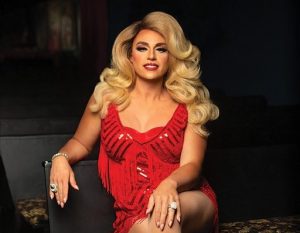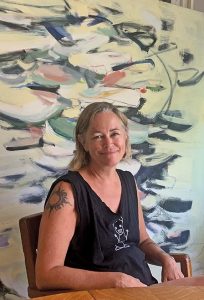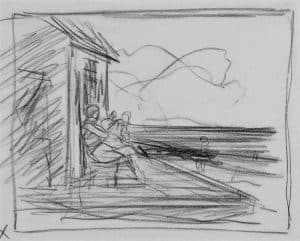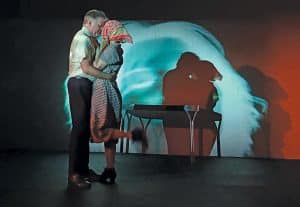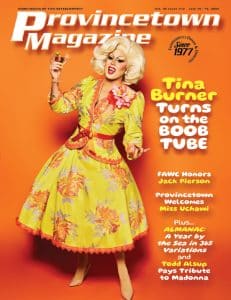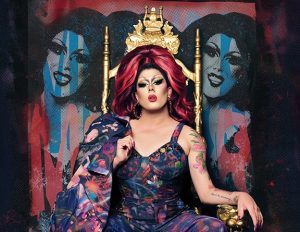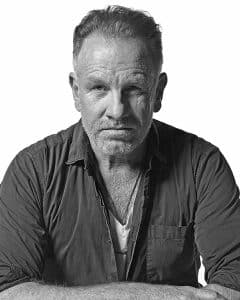by Rebecca M. Alvin
The Outer Cape has a complicated identity, much more so than the rest of Cape Cod. Long known as a place occupied by fishermen, artists, misfits, and radicals, it simultaneously attracts bourgeois second-home owners who work normal jobs in normal East Coast cities and suburbs. Wellfleet is kind of a microcosm of this eclectic population, and its environment echoes the diversity of the Cape, with its dense woods and fresh ponds coexisting beautifully with sandy beaches and ocean surf. It’s a place where unexpected meetings happen, where surfers, actors, oystermen, and poets can all converge for a drink in the tiny village center. It’s also the place where Marge Piercy has chosen to live for 47 years.
The acclaimed poet, feminist, and activist was born in Detroit in 1936 but moved here in 1971. Like her adopted town, at first glance, she doesn’t present as a dynamic force to be reckoned with, but if you’ve read any of the over 40 books she’s written, ranging from memoir to poetry to novels to a writing manual, you know her politics are front and center. Economic inequality, racism, misogyny, war, and corporate greed have all been targets of Piercy’s mighty pen over the course of her 50 years as a published writer. And she will be honored for her writing by the Provincetown Public Library with this year’s Rose Dorothea Award on Friday night.
Her home is tucked away in the Wellfleet woods. Though she and husband, Ira Wood (whom she calls “Woody”), grow nearly all of the produce they eat here, the place retains a sense of wildness. No manicured lawn or precious picket fences here. It’s the real Cape Cod, the one Piercy remembers from when she first moved here. “The Cape in those days was not full of rich people. There were a lot of old lefties. There was a lot of people without much money. You could live off the land then. It was a very loose place,” Piercy explains. “One of the main doctors in town when I moved here had two wives and was covered with tattoos. I mean, I felt every much at home here.”
She moved to the Cape from New York, where she had been very active in the anti-war movement, which she says was “self-combusting due to COINTELPRO,” the Nixon Administration’s counterintelligence effort to infiltrate progressive groups with the aim of destroying them from within. “Things were really getting very bad,” she recalls. “Plus, I’d been gassed a number of times in anti-war demonstrations and so forth. And I was a street kid in Detroit; I’d smoked since I was 15, and I had chronic bronchitis, and the movement doctor, who was treating me for free, told me I’d be dead in two or three years and it wasn’t worth his time to treat me. So I walked out of his office and never smoked again… I’d come here with a boyfriend before I’d gone to Cuba, and I really liked it, and the air was very good here, so we moved. It was time to get out of New York. It was a bad time in New York.”
Already a published author, Piercy says there was no “culture shock” moving to a small New England fishing village from New York City because she was traveling around so much doing readings and appearances. Making a living as a writer—and only as a writer—is something that Piercy was able to do in large part because of her discipline and her passion for the work. Unlike many creative people who support themselves by teaching and only peripherally with their actual art work, Piercy avoided the academic world, to which she never felt connected.
“When I left [Northwestern] University, I just had a master’s, I only had to take one course and rewrite my master’s thesis for a Ph.D., and I left, because that wasn’t how I wanted to live my life. I feel that writers that spend their entire life in universities, often their writing gets thinner and thinner because they have less contact with ordinary people. Here you have a lot of contact with ordinary people,” she says.
Piercy is best known as a poet, with more than 20 volumes of poetry to her credit, but she is also a novelist with 20 of those to her credit, and the author of two memoirs and a writing guide co-authored with Woody. Her writing is down-to-earth, solid, and very political, whether she’s writing about the past, as in the bestelling World War II novel Gone to Soldiers (1988) or about the future, as in He, She and It (1991), which takes place in the mid-21st century.
“Everything I wrote about in He, She and It has come true. The only problem was I thought global warming would take longer,” she says. “I read the scientific papers at the time I was writing it and that was the predictions then. Well it’s happened so much faster than anyone expected. And politics as spectator sport, that’s happened, basically the country being run by large international corporations has happened. The cities — nevermind. Just so much of what I wrote about has come true. And of course, the Internet. I was anticipating how much it would take over our lives.”
As someone who was born during the Depression and lived through the turbulent Sixties, Piercy says the state of our society today is much worse than either of those times. “It’s the worst of all… What [President Trump] is doing to the environment, we may have reached a tipping point. This may be the end of the anthropocene,” she says, adding, “Trump has no empathy. Someone who can rip young children from their parents. You know what they think? ‘They didn’t love me, they gave me away.’ They’re traumatized for life… It horrifies me. Everything he’s doing. Hunting in Yellowstone? You know what that’s going to be like?… Where all the animals have been safe for a hundred years? They just walk up to you.”
While Piercy travels much less and lives in what’s left of the wilderness out here, she remains connected to the world around her and continues to write daily. “I like to write. I’m not one of these people who say,‘Oh, writing is such agony!’ I like to write. I enjoy it.”
When she receives the Rose Dorothea Award at the Provincetown Public Library this weekend, Piercy will read from two of her most recent poetry books, but she is not sure which ones she’ll read just yet. “ I haven’t put the program together yet. I was planning to do it this afternoon after you leave. But Woody brought in several pounds of beans that I have to freeze,” she explains with a smile.
Marge Piercy will receive the Rose Dorothea Award at a reception at the Provincetown Public Library, 356 Commercial St. on Friday, September 14 at 7 p.m. The event is free, but donations will be accepted. For more information, call 508.487.7094 or visit provincetownlibrary.org.



